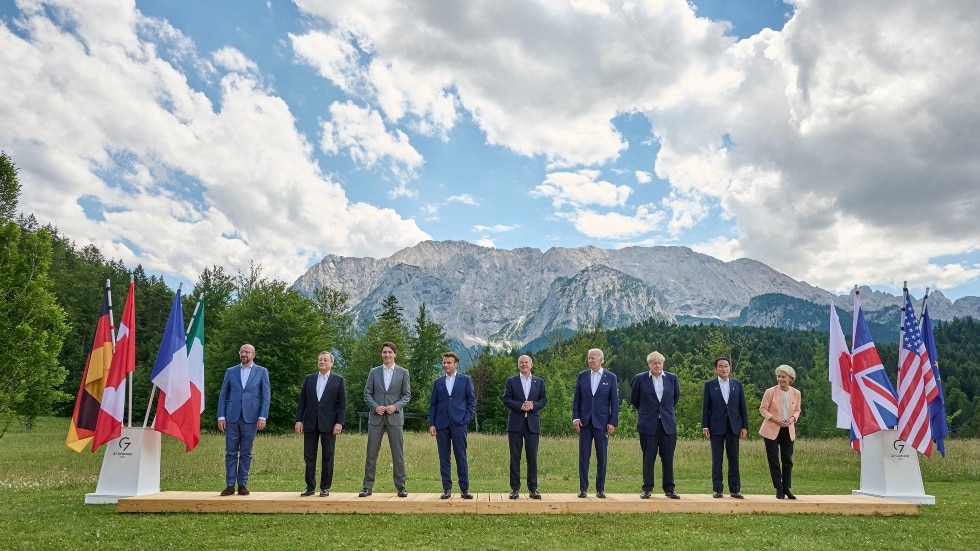Leaders in the Group of Seven (G7) have vowed to impose “price caps” on Russian oil, hoping they will stop Moscow from reaping the benefit of soaring energy prices and help Europe to wean itself off the country’s exports.
After wrapping up a summit in Germany on Tuesday, the G7 issued a final communique outlining how it would inflict “severe and immediate economic costs” on Moscow in retaliation for its attack on Ukraine, including on Russia’s energy industry.
“As for oil, we will consider a range of approaches, including options for a possible comprehensive prohibition of all services, which enable transportation of Russian seaborne crude oil and petroleum products globally, unless the oil is purchased at or below a price to be agreed in consultation with international partners,” the body said.
Though the G7 nations – the US, the UK, France, Italy, Germany, Japan and Canada – have brought a raft of sanctions aiming to “cripple” the Russian economy, some declaring full embargoes, those efforts appear to have backfired. Europe has curbed some of its imports, but Moscow has found other trading partners in Asia to compensate for the lost markets and its energy revenues are now surpassing pre-war levels.
The Russian currency, meanwhile, took a significant hit soon after the sanctions spree kicked off, but has since recovered and is now among the best performing currencies against the US dollar this year.
The latest bid to slash Russian oil profits – which could see Washington pressure allies to pay below-market prices for the country’s fossil fuels – is the “brainchild” of US Treasury Secretary Janet Yellen, according to the New York Times. In recent weeks, she has reportedly told world leaders that such price caps would be the best way to damage Moscow, reduce world oil prices and “avert a global recession.”
In a statement following Tuesday’s summit, Yellen said the caps would “further strengthen the existing sanctions” and “make sure that [Russian President Vladimir] Putin will not be able to profit from the higher global energy costs that have resulted from his invasion.”
In the group’s final communique, however, leaders stopped short of committing to the idea, instead saying the European Union would work with international partners to “explore … ways to curb rising energy prices, including the feasibility of introducing temporary import price caps where appropriate.”






























